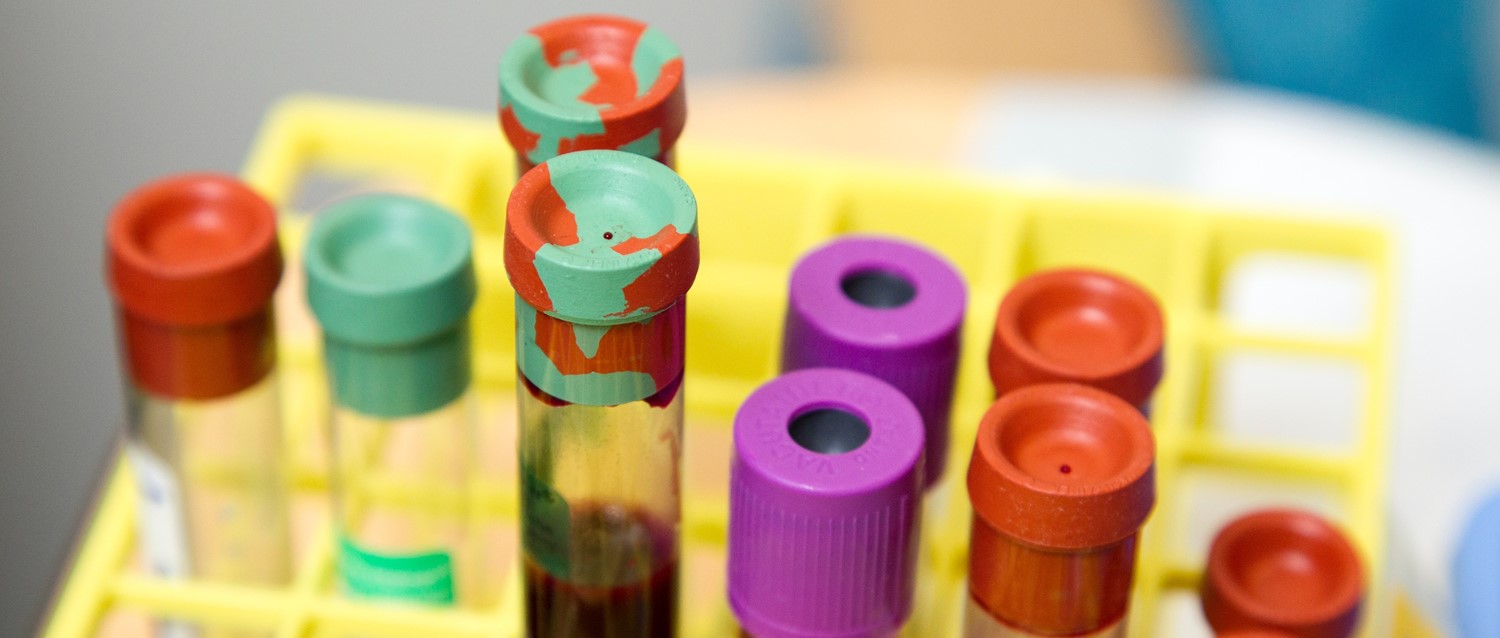
Overcoming your fear of needles
Peer reviewed by Dr Sarah Jarvis MBE, FRCGPLast updated by Abi MillarLast updated 16 Jan 2019
Meets Patient’s editorial guidelines
- DownloadDownload
- Share
- Language
- Discussion
It goes without saying that nobody likes injections. Faced with a routine visit to the pharmacist - be that for a travel vaccination or a flu jab - most people treat the experience as a necessary evil.
For some people, however, disliking injections runs a lot deeper than that. It is estimated that up to 10% of the population have a genuine needle phobia, meaning they have a persistent and excessive fear of needles. This can manifest as deep anxiety before and during the consultation, or even avoiding vaccinations altogether.
In this article:
"Common symptoms of needle phobia are feeling anxious, tense and panicky at the thought of seeing an injection or syringe," explains Nicky Lidbetter, CEO of Anxiety UK. "Other symptoms can include: recurrent nightmares about injections and needles; avoiding medical contact for fear of being confronted with a needle or syringe; and avoiding places associated with needles and injections."
She adds that the anticipatory anxiety is often the worst part. In other words, the run-up to your injection may be more anxiety-inducing than the actual procedure.
Continue reading below
The possible causes
Clearly, this is hugely inconvenient for sufferers, who can feel trapped between a rock and a hard place. One choice is to remain unvaccinated, with the greater risk of contracting something nasty. The other is to dive right in, and experience the thing that brings them such anxiety. In extreme cases, the phobia can be so overpowering that the first option comes to seem preferable.
Dealing with the phobia, then, is really important - and the first step is not to feel ashamed. As Lidbetter explains, needle phobia can have many potential causes, one of which is a negative experience in childhood.
"For many children, an injection can be a frightening experience as they are unsure of what is happening to them," she says. "They are often faced with a doctor, who is seen as a stranger, inflicting pain that is allowed by a parent or guardian. This can understandably be very stressful and confusing and can result in a lasting phobia of needles."
Other people, she says, recall a significant adult in their lives who was also needle phobic. This may imply that the phobia is a learned behaviour, but it can be genetic in origin too.
For evidence of the latter, some people experience something called a vasovagal response (which tends to run in families). When faced with a needle, their blood pressure drops sharply, maybe causing them briefly to lose consciousness. This becomes something of a chicken-egg scenario - are they scared of needles because they associate it with fainting, or do they faint because they're scared of needles?
However it has arisen, needle phobia is treatable and you do not have to be stuck with it forever.
"Cognitive behavioural therapy (CBT) can help people overcome their fear of needles and injections," explains Lidbetter. "People are given techniques to alter negative thoughts and in doing so, change their emotions and behaviour - in this case, moving to being able to tolerate having an injection."
If you're really struggling (and especially if you’re avoiding vaccinations), it's wise to see your GP, who can refer you for CBT. Anxiety UK also has some helpful online resources, along with a helpline.
Improving the experience
Back to contentsSo if you're determined to face your fears and get those travel jabs, what can you to do make the experience as painless as possible?
According to Sibby Buckle, a consultant pharmacist and Royal Pharmaceutical Society board member, it's vital to let your pharmacist know you have anxiety around needles.
"Have trust in your healthcare practitioner and if there's anything concerning you, say it right up front," she says. "For example, if you've reacted to a needle in the past, or you've fainted in the past, or you want to know how much it's going to hurt afterwards, just speak out. Voice your fears, don't try and pretend, and you’ll find that your pharmacist will take that on board and try to reassure you."
As she points out, it'll be nothing they haven't heard before - every experienced pharmacist will have dealt with needle phobia in the past (as well as the symptoms of vasovagal response). If the worst does occur, and you end up fainting, you can be assured they're trained in how to help you.
"If someone has just fainted, you lie them down (on a bed, couch or the floor) and rest their legs up against the wall, which allows the blood flow to come back to the heart," she says. "Within seconds people start to come round, but I generally get them to lie or sit there for a bit longer."
She adds that, as a pharmacist, she employs plenty of strategies to ensure the experience is as comfortable as possible. This can range from visual distractions such as posters, to chatting about other topics, to rewarding children with a toy or sticker. She also instructs people to relax their muscle, which makes the injection much easier from both sides.
Lidbetter adds that, if you're worried about pain, it may help to buy a topical anaesthetic beforehand.
"There are a number of products that you can buy from the chemist that work to numb the site of an injection and thus take away the stinging sensation and uncomfortable feeling. These are used by many people who are needle phobic to help overcome their fears," she says.
You can also bring a friend or family member into the consultation room - but be smart about picking the right person. Buckle's personal policy is not to allow large groups or families, as they tend to escalate each other's worry levels.
"What I need to assess very early on in the appointment is, is that person reassuring you or are they winding you up? In this case, you have to reassure that person too, so there's quite a lot of psychology involved," she says.
It's unlikely that being vaccinated will ever become anyone's favourite activity. However, if you're honest with your pharmacist, the experience should become a lot less daunting.
"Generally once you get people talking, they forget you're about to vaccinate them and often they say, oh have you done it already?" says Buckle. "I'll say, yes, that's it, and by that point I've already put a plaster on their arm."
Patient picks for Phobias and fears

Mental health
Facing your fear of the doctor: tips for easing medical anxiety
Many of us feel anxious or nervous when visiting the doctor. But people with iatrophobia have a more intense, irrational fear. If you have doctor anxiety, we have some advice from a medical professional to help you overcome it.
by Victoria Raw

Mental health
How to get over a fear of blood tests
Blood tests are a great diagnostic tool, giving vital information to doctors about the state of a patient's health. But for many of us, the idea of having blood drawn from our arm can put us into a panic. If you're feeling nervous about an impending test, try our tips for managing the procedure.
by Gillian Harvey
Article history
The information on this page is peer reviewed by qualified clinicians.
16 Jan 2019 | Latest version

Ask, share, connect.
Browse discussions, ask questions, and share experiences across hundreds of health topics.

Feeling unwell?
Assess your symptoms online for free
Sign up to the Patient newsletter
Your weekly dose of clear, trustworthy health advice - written to help you feel informed, confident and in control.
By subscribing you accept our Privacy Policy. You can unsubscribe at any time. We never sell your data.